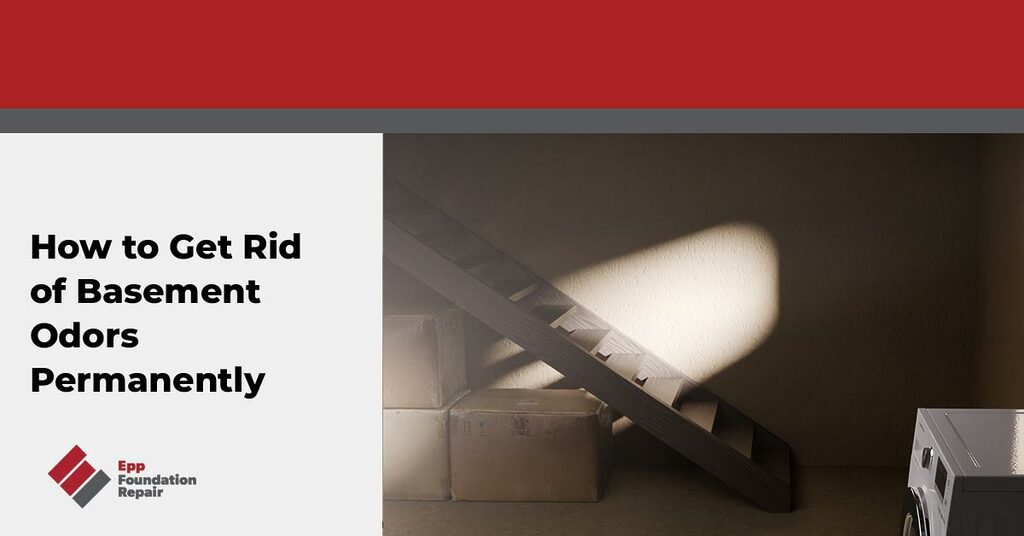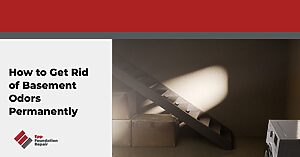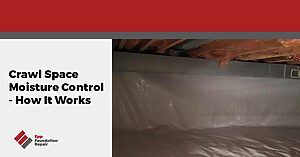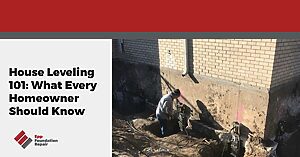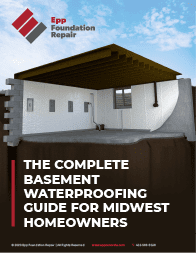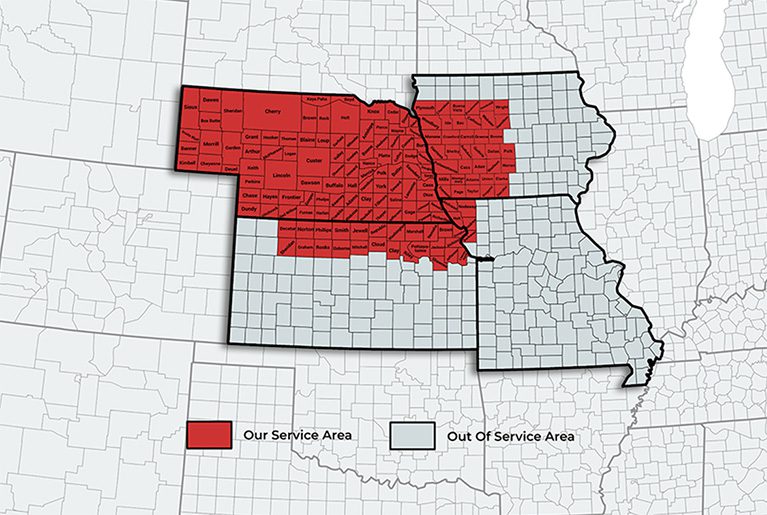Musty basement odors are unpleasant but also a sign of much more significant problems – moisture and mold. Stop trying to mask the smell with fancy sprays and cleaners, and find out how to eliminate your basement’s odor forever. In this article, we will review the source of the musty smell in your basement, why you shouldn’t ignore it, and what it takes to have an odor-free basement.
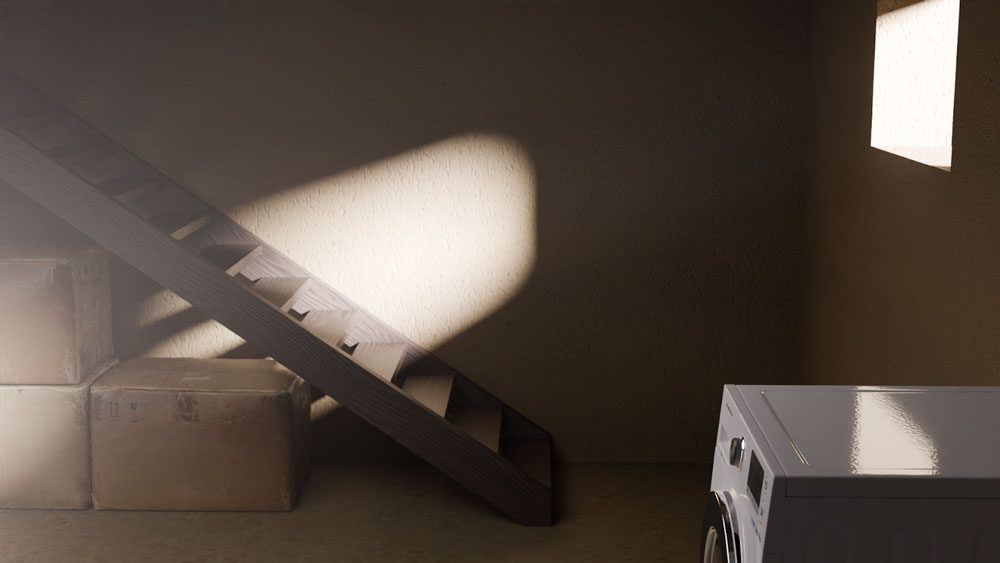
Why Does My Basement Smell Musty?
While basements may have different smells, depending on their use, it is always alarming when you smell something musty. A musty odor in your basement is a telltale sign of moisture and mold. Even in a seemingly dry basement, moisture can go undetected behind the walls and cause mold to grow and spread.
Basements are generally dark and surrounded by soil. Water buildup in the soil creates hydrostatic pressure, which pushes against your basement walls. Over time, this pressure can create cracks in your basement wall and even cause it to bow. With just the slightest crack, the moisture from the soil will begin to penetrate your basement and create a breeding ground for mold and mildew, producing that musty odor.
Moisture can also enter your basement if you have unvented kitchens and bathrooms, an unvented clothes dryer, plumbing leaks, or an open window letting in humid air. Take some time to inspect your basement for any condensation, leaks, backed-up water lines, or other signs of water penetration. If you cannot find any moisture but the musty smell persists, call an expert for a more detailed inspection.
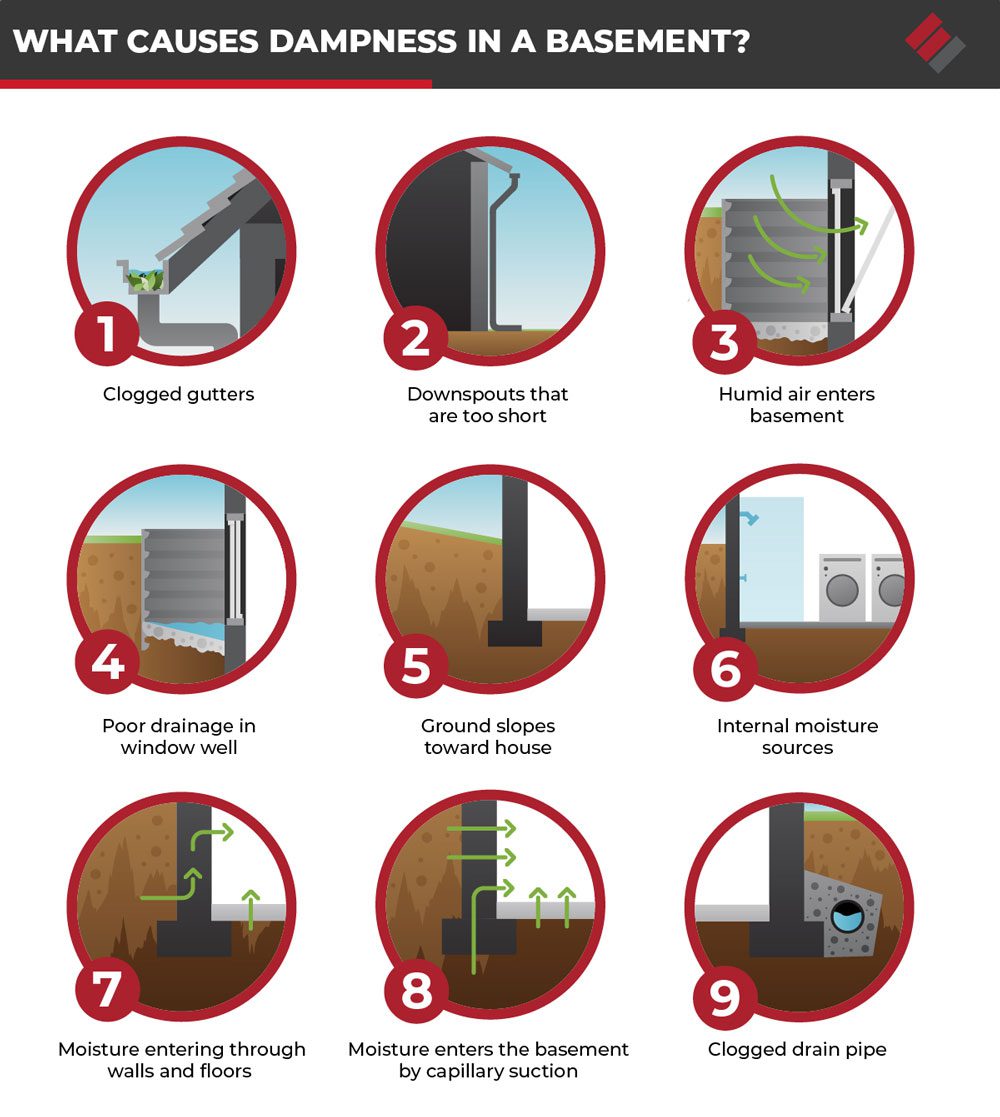
Should I Worry about the Musty Odor in My Basement?
Yes! As stated above, a musty odor in your basement means mold is present. Mold poses a health threat to you and your family, especially if anyone already suffers from allergies, asthma, COPD, or other respiratory conditions. Individuals sensitive to mold are likely to experience the following symptoms:
- Stuffy nose
- Throat irritation
- Coughing
- Wheezing
- Eye irritation
- Skin irritation
A percentage of the air from your basement will circulate in your home, carrying mold spores and encouraging the spread of mold. That is why any sign of mold should be taken seriously and addressed immediately.
Eight Steps for Permanently Removing a Musty Basement Odor
1. Eliminate Water and Moisture
The first step to permanently removing that musty odor from your basement is to find and eliminate the presence of water and moisture. There is no point in masking the smell with deodorizers or even removing the mold if the root problem is not addressed. While some sources of moisture may be obvious and easily fixed, like a leaking pipe, others are hidden and more complex to fix.
Call a professional basement waterproofing company to inspect your basement, determine the source of the moisture, and help you stop it. Step five will review popular basement waterproofing techniques.
2. Remove Mold and Mildew
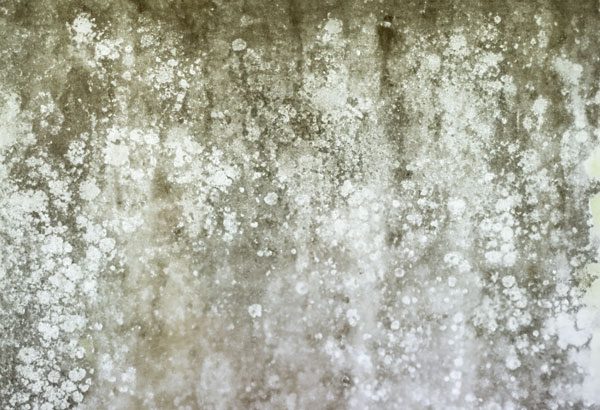
You must remove the mold once you have stopped water from entering the basement. If the mold is visible and covers roughly less than ten square feet, you can attempt to remove it yourself using vinegar or bleach. But do not mix vinegar and bleach, or you can create poisonous chlorine gas! If you speculate that there may be more mold behind any finished walls or the mold spans an area larger than 10 square feet, the EPA recommends hiring a mold remediation specialist to ensure complete mold removal.
3. Dehumidify
Since basements are below ground, they are inherently colder than the rest of your home. Naturally, when the warmer air from the rest of your home meets the cooler air in the basement, it creates condensation. Installing a dehumidifier will help to remove any moisture in the air and prevent condensation. Read more about – ideal basement humidity.
4. Clean Clogged Sewers or Water Lines and Cover Your Sump Pump
Maintaining your sewer and water lines will prevent foul-smelling sewage from seeping into your basement and creating puddles of stagnant water. Another tip is to seal your sump pump. While sump pumps are great tools that help keep your basement dry, an open sump pit can have musty, standing water. Covering the sump pit will prevent the musty odor from returning to your basement.
5. Waterproof Your Basement
To prevent future water damage to your basement and the return of the musty odor, it is imperative to waterproof your basement. There are simple steps that homeowners can attempt to do themselves, as well as professional solutions that guarantee the safety of your home.
- Clean your gutters and install gutter extensions. An efficient gutter system will carry water at least ten feet away from your foundation to prevent the oversaturation of the soil surrounding your basement.
- Seal any cracks and leaks. Small cracks and leaks around pipes may only require a simple patch using hydraulic cement or polyurethane caulk. Larger cracks, leaks, and seepage over your basement walls and through the cove joint need more professional repair using epoxy injections and a drain tile system.
- Regrade your yard. You want to ensure that during rainfall and snowmelt, water runs away from your home, not towards it. By regrading your yard, you can change its slope to prevent water buildup around your foundation.
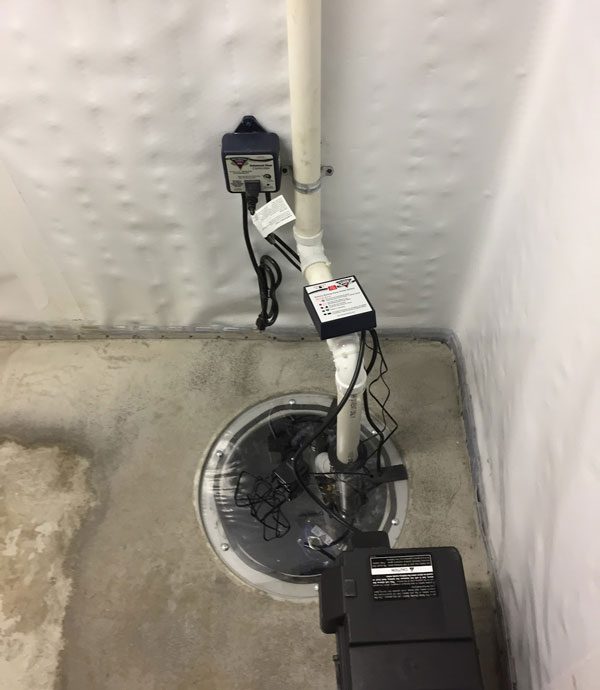
- Install an interior or exterior drain tile system. These systems prevent moisture from building up around your basement by collecting the water and directing it to a sump pit.
- Install a sump pump with a backup battery. A sump pump sits in a sump pit and actively removes groundwater from below your home. If there is a power outage, which can happen during a flood, the backup battery will allow the pump to keep working and prevent your basement from flooding.
- Install a French drain. A French drain collects water in your yard and channels it towards a dry well or drainage ditch.
- Install a window well cover and ensure proper drainage. Covering your window well will prevent debris from clogging the well. A properly draining well will prevent water from leaking through the window into your basement.
- Install a vapor barrier and an exterior waterproofing membrane. These barriers prevent moisture diffusion through your basement walls, keeping your basement nice and dry.
- Correct any structural issues. Suppose your walls are bowed, or your foundation is sinking unevenly. In that case, you must support them to prevent water penetration and avoid future cracks in your basement, let alone protect the structural integrity of your home.
- Bowed Walls: A professional may recommend the use of wall anchors, helical tiebacks, carbon fiber straps, or steel I-beams to align a bowing wall
- Differential Settlement: An expert will recommend foundation underpinning if your foundation is sinking unevenly. Underpinning involves using push or helical piers to connect your foundation to stable soil or bedrock and then push it back up to level it out as much as possible.
6. Increase Air Circulation
Ensure your basement is adequately ventilated to support current uses, like a kitchen, bathroom, or clothing dryer. Also, consider installing ceiling or box fans and occasionally running your home’s furnace to increase airflow. Increased airflow will help prevent odors from building in your basement, and your furnace’s filter will help capture mold spores. Word of caution: avoid opening the windows and doors in the basement during the summer months to avoid high humidity.
7. Increase Natural Light
Research has shown that natural light can kill odor-causing germs and bacteria. Therefore, open the curtains and let the light shine through your basement windows. Just be sure that your windows are well sealed and that you maintain your window wells to prevent moisture from creeping in.
8. Remove Remaining Odor from Items in the Basement
Despite eliminating mold and fully waterproofing and ventilating your basement, you may still notice some lingering smells. It is crucial to clean all surfaces thoroughly with an odor-eliminating solution. Try using a mixture of equal parts water and white vinegar. You can also place bags of DampRid or bowls of baking soda, kitten litter, or white vinegar around your basement to absorb lingering odors in the air. Lastly, try renting a steamer to deep clean all upholstered furniture and carpets since they are the most likely to hold on to foul smells. If you follow these steps, your basement should be smelling fresh again in about a week.
Don’t wait to tackle that musty basement odor. Protect your home and your family by scheduling an appointment with us today. We will provide a thorough inspection of your basement and a plan to waterproof it. We service areas in Nebraska, Kansas, Iowa, and Missouri.

